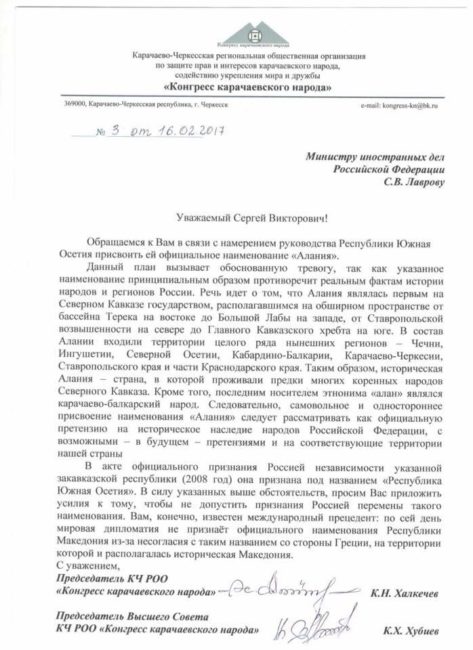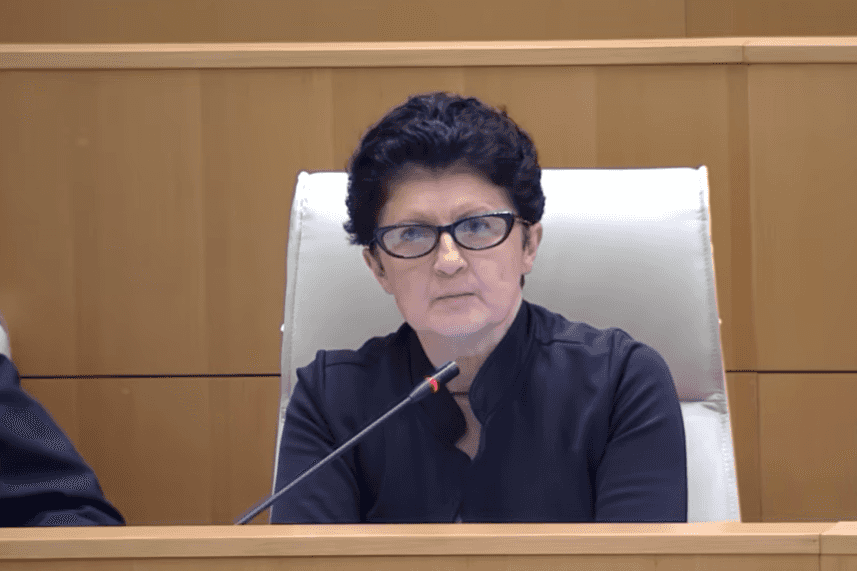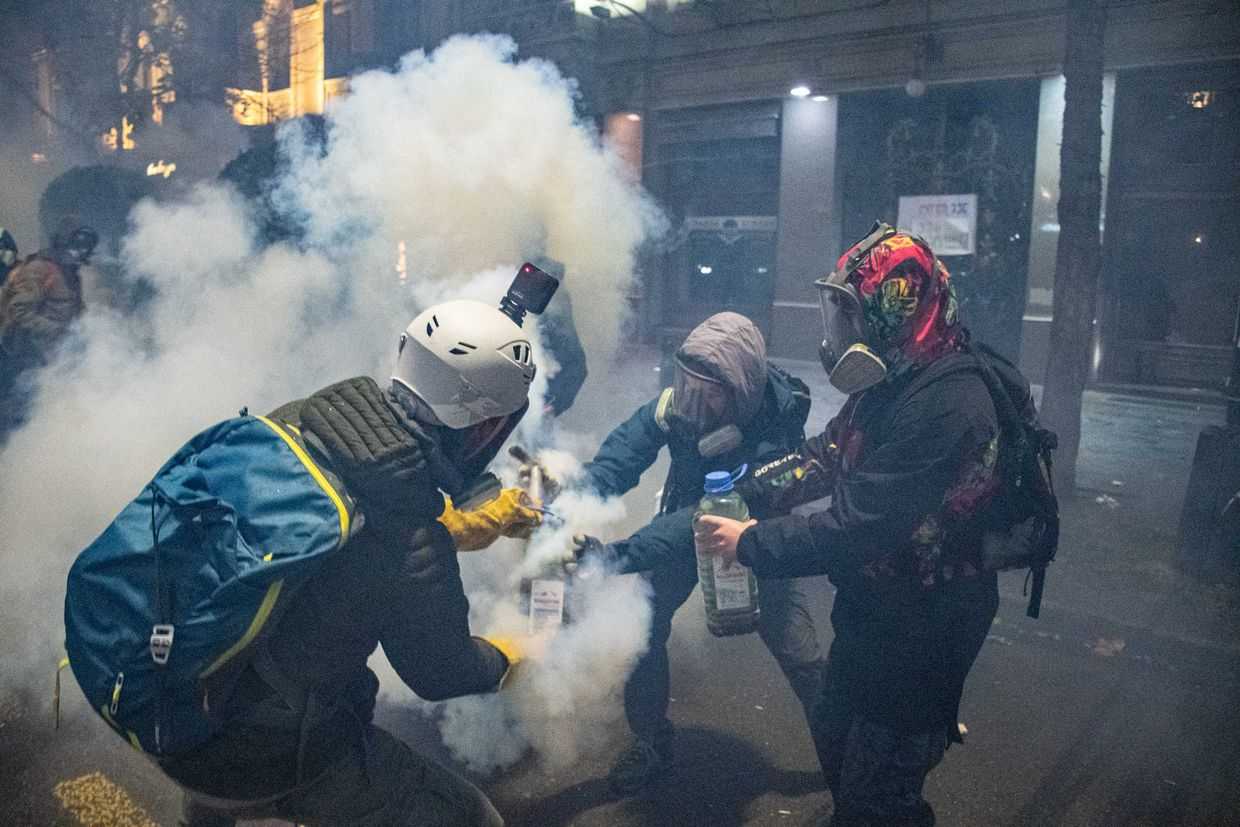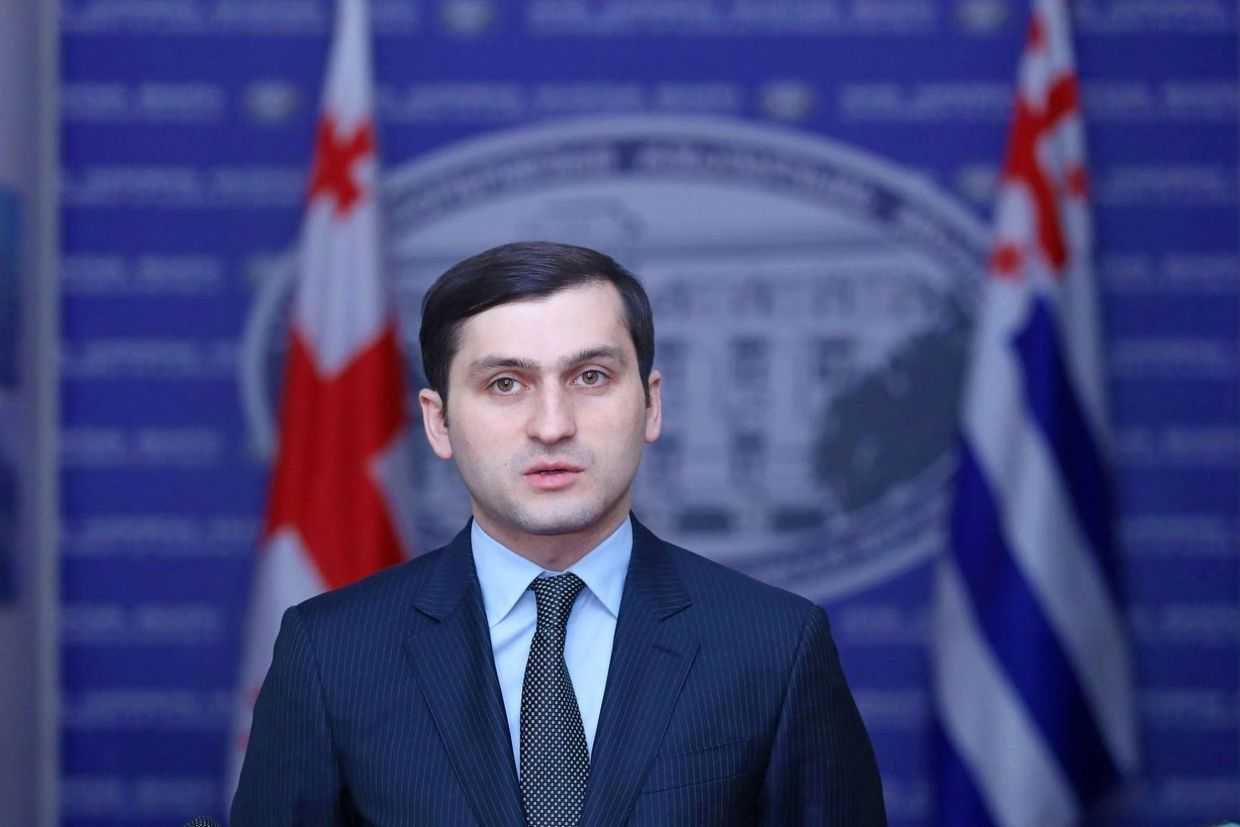
 On 16 February, the Karachay National Congress, a Karachay activist group, addressed Russian Foreign Minister Sergey Lavrov, urging the government not to allow South Ossetia to rename itself ‘Alania’.
On 16 February, the Karachay National Congress, a Karachay activist group, addressed Russian Foreign Minister Sergey Lavrov, urging the government not to allow South Ossetia to rename itself ‘Alania’.
According to the address, Alania was historically the first major Caucasian kingdom, whose ethnic composition included not only Ossetians, but other North Caucasian peoples as well. They argue that they also have claims to the name Alania, as they were ‘the last people who bore this name’.
The authors of the statement brought up the example of Macedonia, whose name hasn’t bee

n internationally recognised due to a dispute with Greece, as a potential problem for South Ossetia should the name be changed.
Karachay are a Turkic-speaking ethnic group closely related to Balkars, another North Caucasian people, inhabiting the Republic of Karachayevo–Cherkessia, some 400 km away from South Ossetia.
The statement by the Karachay National Congress follows a recent South Ossetian initiative to rename the de facto republic into ‘Republic of South Ossetia — State of Alania’, mirroring the official name of the neighbouring Russian republic of North Ossetia–Alania. The initiative raised many eyebrows in the North Caucasus, especially among Ingush, who also claim Alan heritage.
The Karachay activists’ statement provoked comments in North Ossetia as well.
‘They’re looking for a problem where there’s none’, Aleksandr Bagayev from the Alan Brotherhood organisation wrote in a statement published by North Ossetian website 15th Region.
He argued that other peoples, like the Karachay and Ingush, shouldn’t make claims to the name Alania. According to Bagayev, Russian and global scientists reached a consensus long ago that Ossetians are the descendents of the Alans, and that claims to the contrary are ‘attempts to rewrite history’.
The South Ossetian initiative has also attracted criticism from Georgian President Giorgi Margvelashvili, who said that expression of free will through elections wasn’t possible as long as the territory was occupied by a foreign government and the majority of the indigenous population had been expelled.
‘Any attempt to change the status of the occupied regions of Georgia without the consent of the central Georgian Government constitutes an infringement of Georgia’s sovereignty and territorial integrity and is another step towards the annexation of the occupied territories’, Margvelashvili’s statement read.







